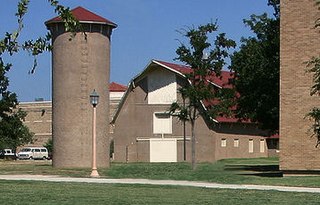Related Research Articles

Agritourism or agrotourism involves any agriculturally based operation or activity that brings visitors to a farm or ranch. It encompasses a wide range of activities, including direct-to-consumer sales such as farm stands and u-pick, agricultural education through school visits, hospitality services like overnight farm stays, recreational activities such as hunting and horseback riding, and entertainment events like hayrides and harvest dinners. These activities provide an additional source of income for farmers and help sustain small-scale farms.

A tenant farmer is a person who resides on land owned by a landlord. Tenant farming is an agricultural production system in which landowners contribute their land and often a measure of operating capital and management, while tenant farmers contribute their labor along with at times varying amounts of capital and management. Depending on the contract, tenants can make payments to the owner either of a fixed portion of the product, in cash or in a combination. The rights the tenant has over the land, the form, and measures of payment vary across systems. In some systems, the tenant could be evicted at whim ; in others, the landowner and tenant sign a contract for a fixed number of years. In most developed countries today, at least some restrictions are placed on the rights of landlords to evict tenants under normal circumstances.

Mercy Corps is a global non-governmental, humanitarian aid organization operating in transitional contexts that have undergone, or have been undergoing, various forms of economic, environmental, social and political instabilities. The organization claims to have assisted more than 220 million people survive humanitarian conflicts, seek improvements in livelihoods, and deliver durable development to their communities.

Hadlow is a village and civil parish in the borough of Tonbridge and Malling in Kent, England. It is situated in the Medway valley, north-east of Tonbridge and south-west of Maidstone.
FreshMinistries is a non-profit organization based in Jacksonville, Florida. The organization focuses on economic development, job training and health initiatives in Jacksonville. FreshMinistries also engages in international projects.

Agricultural education is the systematic and organized teaching, instruction and training available to students, farmers or individuals interested in the science, business and technology of agriculture as well as the management of land, environment and natural resources.

A smallholding or smallholder is a small farm operating under a small-scale agriculture model. Definitions vary widely for what constitutes a smallholder or small-scale farm, including factors such as size, food production technique or technology, involvement of family in labor and economic impact. There are an estimated 500 million smallholder farms in developing countries of the world alone, supporting almost two billion people. Smallholdings are usually farms supporting a single family with a mixture of cash crops and subsistence farming. As a country becomes more affluent, smallholdings may not be self-sufficient. Still, they may be valued for providing supplemental sustenance, recreation, and general rural lifestyle appreciation. As the sustainable food and local food movements grow in affluent countries, some of these smallholdings are gaining increased economic viability in the developed world as well.

Rex Munro Paterson OBE was an English agricultural pioneer whose extensive business and meticulous record keeping enabled him to carry out research and development in dairy farming systems on a scale that would have been beyond most research institutions.

Betteshanger is a village and former civil parish. now in the parish of Northbourne, in the Dover district, in east Kent, UK, near Deal. It gave its name to the largest of the four chief collieries of the Kent coalfield. In 1931 the parish had a population of 55. On 1 April 1935 the parish was abolished and merged with Northbourne.

Hadlow College is a further and higher education college in Hadlow, Kent, England. The curriculum primarily covers land-based subjects including Agriculture, Horticulture, Conservation and Wildlife Management, Animal Management, Fisheries Management, Equine Studies and Floristry. Additionally, intermediate and advanced apprenticeships are offered in Golf Greenkeeping, Sports Turf, Agriculture, Horticulture and Land-based Engineering.

Agriculture in the United Kingdom uses 70% of the country's land area, employs 1% of its workforce and contributes 0.5% of its gross value added. The UK currently produces about 54% of its domestic food consumption.
Irene Joan Thirsk, was a British economic and social historian, specialising in the history of agriculture. She was the leading British early modern agrarian historian of her era, as well as an important social and economic historian. Her work highlighted the regional differences in agricultural practices in England. She also had an interest in food history and local English history, in particular of Hadlow, Kent.
In the agricultural context, diversification can be regarded as the re-allocation of some of a farm's productive resources, such as land, capital, farm equipment and labour to other products and, particularly in richer countries, to non-farming activities such as restaurants and shops. Factors leading to decisions to diversify are many, but include: reducing risk, responding to changing consumer demands or changing government policy, responding to external shocks and, more recently, as a consequence of climate change.

Basil Desmond Neame CBE was a Kentish fruit grower and farmer.
Princess Christian's Farm is an educational facility geared towards people with learning disabilities. The farm is run by a partnership with Kent County Council Social Services for the benefit of adults with learning difficulties and disabilities. The overall aim of the partnership is for the individuals to learn new skills and develop opportunities to move into employment.

The Agricultural Holdings Act 1995 is an Act of the Parliament of the United Kingdom which applies to England and Wales. It is in force. The Act reformed and substantially deregulated the law relating to agricultural tenancies, and has had the dual effects of increasing the amount of land available to rent in the agricultural sector, and increasing the average rent per acre charged.
The World Cocoa Foundation is a non-profit membership organization with more than 90 member companies striving to make the cocoa supply chain more sustainable. WCF and its members are criticized for doing too little to end child labor, deforestation and extreme poverty, with their efforts dismissed as greenwashing and “a remarkable failure”. WCF's membership includes chocolate manufacturers such as Mondelez International, Nestlé, The Hershey Company and Mars, Inc. cocoa producers and suppliers such as Barry Callebaut and Cargill, shipping companies and ports and retailers such as Starbucks.

North Kent College is a further education and higher education college in Kent, England founded in 2014. Its campus in Tonbridge offers numerous courses and qualifications at many levels, from GCSEs and A-levels to vocational routes such as BTEC or NVQ/VRQ Diplomas to work-based apprenticeships and degree programmes, validated by the University of Kent, University of Greenwich and Canterbury Christ Church University.

The Uganda National Entrepreneurship Development Institute (UNEDI) is a privately owned national resource development institution in Uganda whose focus area is entrepreneurship education, training and research. The institute provides training techniques, faculty support, consultancy, research as well as teaching and development of entrepreneurship training materials.
The Queen's Award for Enterprise: Sustainable Development is awarded each year on 21 April by Queen Elizabeth II, along with the other two Queen's Awards for Enterprise categories.
References
- ↑ "DEFRA - New Entrants, Fresh Start". Archived from the original on 2010-05-09. Retrieved 2009-10-23.
- ↑ "Career in Farming website". Archived from the original on 2010-08-27. Retrieved 2009-11-03.
- ↑ "Career in Farming website". Archived from the original on 2010-08-27. Retrieved 2009-11-03.